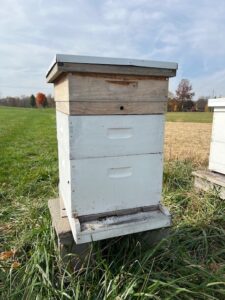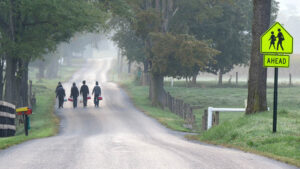“Dearest Father, if I may bother you for the briefest of moments, I believe this offensive insect to be a Rhipicephalus Sanguineus and I would be quite appreciative if you would remove it from my person.” At least that’s what she seems to remember saying to me at the time.To give credit where credit is due, my youngest daughter can be rather articulate when she feels inclined. However, that’s normally reserved for brow beating her younger brother. The way that I remember hearing the above was something a little more like, “Dad! It’s a tick! Get-it-off, Get-It-off, Get-It-Off, GET-IT-OFF!”
 Happily, we only have to put up with the ticks for four or five weeks out of the year. I do feel for the house critters, aka “cats,” as the lady folk will immediately demote them from the lofty status of “adorable, furry, lovable, squeezable, angelic, has-every-right-to-expect-to-be-carried-everywhere” to “tick taxi” for the duration. That’s got to be tough on anything with a cat-sized ego.
Happily, we only have to put up with the ticks for four or five weeks out of the year. I do feel for the house critters, aka “cats,” as the lady folk will immediately demote them from the lofty status of “adorable, furry, lovable, squeezable, angelic, has-every-right-to-expect-to-be-carried-everywhere” to “tick taxi” for the duration. That’s got to be tough on anything with a cat-sized ego.
When I was growing up “Down South”, I seem to recall ticks being a three season affair. Grandpa Mac and I would sit outside in the evenings pulling ticks off the Irish Setters, dropping them in an old soup can with half a cup of gasoline in the bottom of it, and smoking cigarettes. Grandma Mac wasn’t overly fond of ticks or smokers, so the entire lot of us (dogs, ticks, and the male members of the species who were foolish enough to smoke around gasoline) were relegated to the great out-of-doors and chided through the screen door. That didn’t bother Grandpa much, as he’d lost most of his hearing in a battleship cannon turret during the Battle of Midway. Not too much bothered Grandpa. I was being a rebellious youth, which is pretty pointless unless you manage to annoy somebody, so I was holding up my end. Undoubtedly the ticks could’ve been happier with the situation but . . . such is life.
I don’t generally have much of a problem with most insects. And that seems to be a proper attitude when you’ve chosen to live off the beaten path or, at the least, in places where the municipality doesn’t engage in aerial spraying the moment more than six skeeters are counted within a one block radius. Barring the poisonous varieties, and the overly large varieties, spiders and I get along tolerably well. I’ll happily clean up cobwebs if they’ll keep the flying annoyances to a manageable level and stick to the corners. Black flies can be a nuisance, but that’s generally more of a horse problem than a people problem and I am willing to hang fly tape, and spray both the critters and their surroundings, when it’s called for. Mosquitoes happen. Horse flies . . . let’s just say that I’m with the horses on that one. The first hummingbird of the season invariably gives me a solid scare because my ears register “It’s a Cessna-sized, bite-an-arm-clean-off, horse fly!” before my eyes have overruled them with a “Don’t swat at that! It’s a diminutive, iridescent, Harrier jet-type bird!”
 If there’s a single redeeming factor to living in “The Great White North” it’s that the variety of offensive bugs is smaller and generally have to start from scratch every year. The farther south you go, the bigger the bugs get- until you finally reach Florida. At least that’s been my personal observation. I spent two summer seasons working in Dade County and learned two valuable things from the experience. The first is that when cockroaches get large enough- they’re no longer called cockroaches. A cockroach large enough to carry off a Chihuahua is called a Palmetto bug. The second is that you never, never ever, kill a green lizard in the house. It will severely upset your hostess. Anything that actively hunts down Florida-sized insects is welcome to not only the couch, but the cheese puffs and the TV remote.
If there’s a single redeeming factor to living in “The Great White North” it’s that the variety of offensive bugs is smaller and generally have to start from scratch every year. The farther south you go, the bigger the bugs get- until you finally reach Florida. At least that’s been my personal observation. I spent two summer seasons working in Dade County and learned two valuable things from the experience. The first is that when cockroaches get large enough- they’re no longer called cockroaches. A cockroach large enough to carry off a Chihuahua is called a Palmetto bug. The second is that you never, never ever, kill a green lizard in the house. It will severely upset your hostess. Anything that actively hunts down Florida-sized insects is welcome to not only the couch, but the cheese puffs and the TV remote.




























